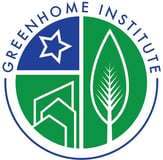Bioterials: how biomanufacturing and biodeconstruction improve our housing and reduce carbon
GreenHome Institute Weekly Free CE Webinar Presents:
Bioterials: how biomanufacturing and biodeconstruction improve our housing and reduce carbon - Free CE Webinar
Wednesday, May 29 @ 12 PM EDT
Details to view the event are private and will be sent along with your ticket purchase.

